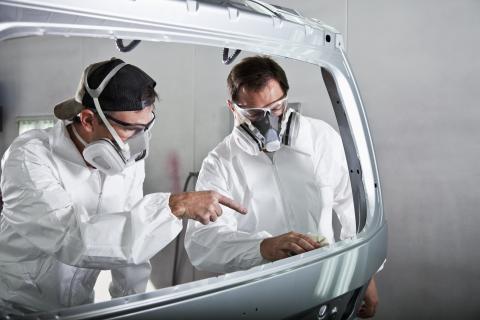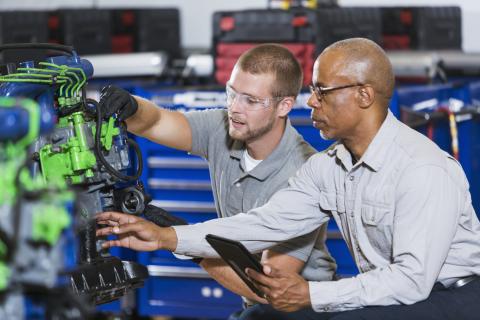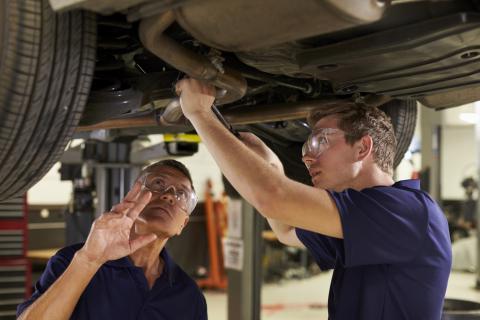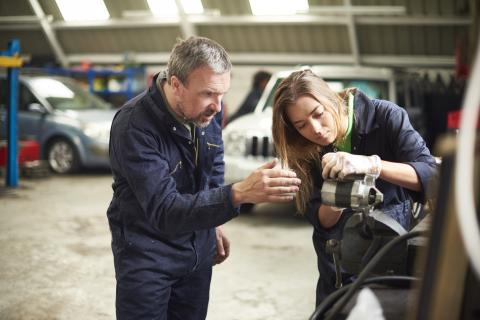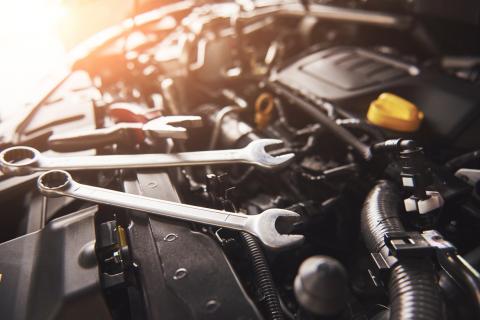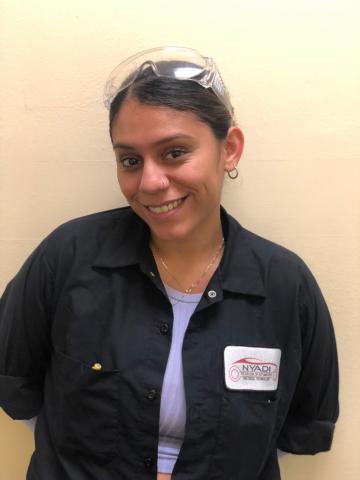5 Mechanic Safety Tips for Working in the Garage
When working in an auto repair garage, it’s important to take the necessary precautions to help protect you, your coworkers and your customers from accidental injuries. That's why NYADI The College of Automotive and Diesel Technology puts a strong emphasis on safety in our coursework, ensuring that all students graduate with a clear understanding of the importance of a safe work facility. Below, we outline five safety tips that all automotive technicians should adhere to while working in the shop. 1. Don’t smoke in or near the garages. Auto repair shops are
Understanding the “Vocation” in Vocational
By definition, the word, “vocation,” refers to a trade or occupation to which a person is well suited. Vocational, then, means schooling that is specifically targeted at a particular profession and the skills that go along with it. As a vocational school in NY, NYADI The College of Automotive and Diesel Technology prepares students to perform a specific job rather than providing them with general knowledge and abstract skills that relate to a variety of fields. Learn why you should opt for vocational training below. Putting Vocation First Whereas traditional degree-granting institutions
Becoming an Auto Technician after Military Service
As a military veteran, you’ve acquired real-world experience and skills during your time in uniform. Put what you’ve learned in regards to technical training, leadership, teamwork, integrity and global awareness to work for you by becoming a certified auto mechanic with help from NYADI The College of Automotive and Diesel Technology. About the Auto Tech Industry Many skills learned during your time in the military easily transfer to the automotive technology industry. For instance, let’s say you were a track vehicle repairer in the U.S. Army. You would have needed to perform
The Benefits of Small Automotive Class Sizes
At most large colleges and universities, it’s normal to have class with as many as 300 other students at a time. While this might work in lecture halls where students are just sitting at their desks taking notes, it doesn’t work in the auto shop. At NYADI The College of Automotive and Diesel Technology, classes are limited to a small number of students—and here’s why. 1. Automotive education requires a hands-on approach. In order to excel as an automotive or diesel technician, you have to have a lot of practical, hands-on experience.
Are You Ready to Take the Wheel? Hands-On Training in the Classroom
Think back to when you were first learning how to drive. You had to read about the rules and take a written test in order to get your permit. But, it wasn’t until you actually got behind the wheel and experienced driving in real traffic situations and real weather conditions that you truly learned how to drive. Taking the wheel – whether literally or figuratively – is called the hands-on learning approach. Here at NYADI The College of Automotive and Diesel Technology, we believe hands-on learning is an extremely valuable part
Taking Our High School Equivalency Exam (HSE)
As you get closer to completing the adult education program at NYADI The College of Automotive and Diesel Technology, it’s time to start getting ready to take the high school equivalency (HSE) exam. The exam is called the TASC and it tests you on high school-level material in a variety of subjects. With enough practice and preparation, you’ll be able to pass and successfully earn your high school equivalency diploma. How to Prepare Because NYADI is an Ability to Benefit (ATB) technical school, students can enroll in TASC preparation courses at the same time
What Are Some Auto Performance Fundamentals?
For many aspiring technicians, auto performance fundamentals will be the first class they ever take at NYADI The College of Automotive and Diesel Technology. While some students already have a basic understanding of what’s under the hood, it’s essential they learn the engine like the back of their hand. Here are some key performance fundamentals that students can expect to learn with an Automotive Technology AOS degree. Engine Components The first step is to become familiar with the engine and its many parts. Cylinders are found at the core of every engine. But, engines are
How You’ll Use Math and Writing Skills in Your Automotive Career
When it comes to the automotive industry, there’s no doubt that cutting-edge mechanical knowledge and a penchant for hands-on work are going to play an invaluable role in helping you earn the position of your dreams. But depending on the type of job you're seeking, there’s a good chance you’ll need to know more than how to conduct repairs. Here, we’ll explore how math and communication skills gained at NYADI The College of Automotive and Diesel Technology can help you succeed as an automotive professional. Using Math at the Service Center Whether
TASC Success Story
Gloryluz Resto, a student who enrolled at NYADI - The College of Transportation Technology two months ago, has earned her High School Equivalency Diploma by excelling on the TASC Assessment Exam! Despite the numerous struggles she had to endure, such as balancing school work and family responsibilities, she was able to overcome all challenges in her life. Her conscious decision to prioritize her future and obtain her High School Equivalency Diploma has opened up many doors for her success.

